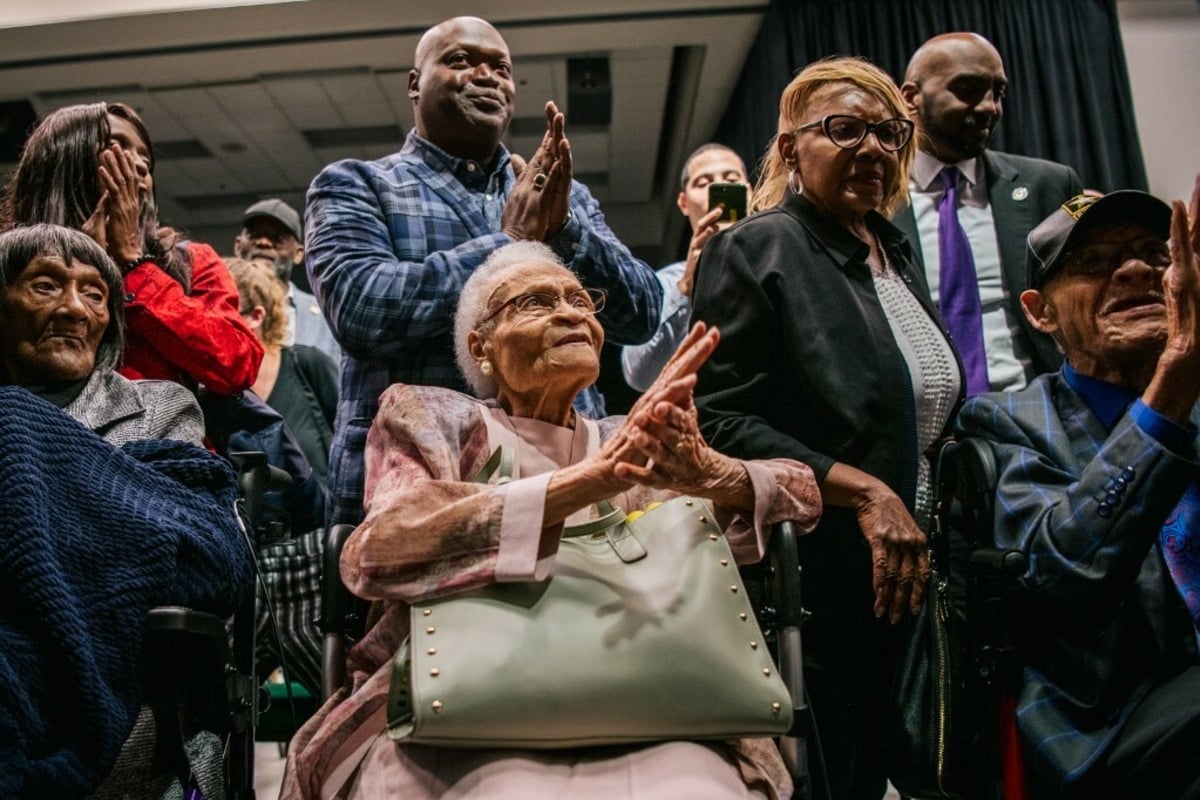
Last Known Survivors of Tulsa Massacre Challenge Oklahoma Supreme Court Decision The last known survivors of the horrific Tulsa Race Massacre of 1921, Viola Fletcher and Lessie Benningfield Randle, have filed a challenge to a recent Oklahoma Supreme Court decision that ruled against their lawsuit seeking reparations for the rampage. The massacre, carried out by a mob of white residents, left over 300 Black people dead, thousands homeless, and an entire neighborhood, Greenwood District, burned to the ground. In 2020, Fletcher and Randle, who were children at the time of the massacre, filed a lawsuit demanding reparations to compensate for the trauma, destruction, and loss they endured. However, in June 2023, the Oklahoma Supreme Court ruled against the lawsuit, citing a lack of standing by the plaintiffs and a legal doctrine known as sovereign immunity, which protects governmental entities from certain lawsuits. Undeterred, Fletcher and Randle, now in their centenarian years, have appealed to the U.S. Supreme Court and filed a formal petition on Wednesday, arguing that the Oklahoma Supreme Court’s decision was flawed and a gross injustice. “The survivors of the Tulsa Massacre have waited over a century for justice,” said Damario Solomon-Simmons, an attorney representing Fletcher and Randle. “The legal obstacles that have been put in their way are just another attempt to deny them the compensation they deserve.” The petition argues that the survivors had legal standing to sue because their injuries were “foreseeable and direct consequences of the Massacre and the State’s failure to protect them.” It also challenges the sovereign immunity defense, arguing that Oklahoma waived such immunity in a previous settlement with victims of another racial massacre. The survivors’ challenge is supported by a diverse coalition of organizations, including the NAACP, the Human Rights Campaign, and the American Civil Liberties Union. “The Tulsa Race Massacre was one of the most heinous crimes in American history, and its survivors deserve justice,” said Sherrilyn Ifill, president of the NAACP Legal Defense and Educational Fund. “We will continue to fight alongside them until they receive the reparations they have been denied for so long.” The Oklahoma Supreme Court’s decision has sparked outrage and calls for accountability. Many have condemned the court’s ruling as a betrayal of the victims and a failure to acknowledge the systemic racism that has plagued the state for generations. The petition filed by Fletcher and Randle is a last-ditch effort to obtain justice for the survivors of the Tulsa Race Massacre. If the U.S. Supreme Court agrees to review the case, it could have far-reaching implications for future reparations lawsuits and the fight against racial injustice in America..
.
Attorneys representing the last two survivors of the 1921 Tulsa Race Massacre petitioned the Oklahoma Supreme Court on Tuesday to reconsider their previously dismissed case. They also implored the Biden administration to intervene and support their pursuit of justice.
Viola Fletcher (110) and Lessie Benningfield Randle (109) are the only known survivors of the brutal attack, which resulted in the deaths of an estimated 300 black residents, the destruction of over 1,200 homes and businesses, and the establishment of internment camps overseen by the National Guard. A white mob, sanctioned by authorities, looted and burned Tulsa’s Greenwood District, also known as Black Wall Street.
In their petition, the survivors urged the court to overturn its 8-1 decision upholding the dismissal of their case by a Tulsa District Court Judge. They argued that the state and federal governments had failed to protect black citizens and that the absence of indictments, unpaid insurance claims, and the forced displacement of black residents constituted crimes against humanity.
“With our own eyes, and etched deep in our memories, we saw white Americans destroy, kill and pillage,” the survivors said in a statement read by their attorney, McKenzie Haynes. They emphasized that the city of Tulsa had subsequently appropriated the historical legacy of Black Wall Street for its own financial benefit.
Attorney Damario Solomon Simmons called upon the U.S. Department of Justice to investigate the massacre under the Emmett Till Unsolved Civil Crimes Act of 2007, which authorizes the reopening of unresolved cases involving violent crimes against black people committed prior to 1970. A Justice Department spokesperson declined to comment.
.